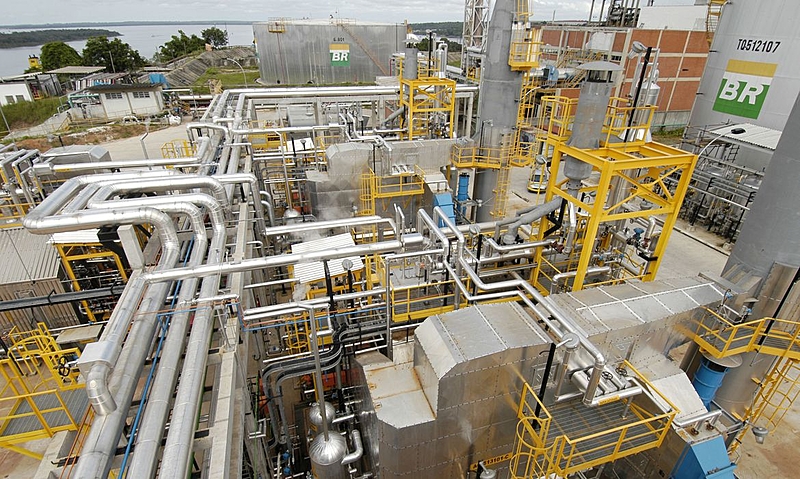RIO DE JANEIRO, BRAZIL – By six votes to four, the Federal Supreme Court (STF) on Thursday, October 1st, cleared Petrobras‘ plan to sell refinery subsidiaries without specific Congressional authorization. The decision is a victory for the government and for the state-owned company’s divestment plans, which include selling eight refineries, more than half of its refining capacity.
The sale of the refining units could bring Petrobras revenues between R$63.6 billion (US$12.7 billion) and R$83.6 billion, according to XP Investments calculations. Petrobras intends to sell the Landulfo Alves (BA), Presidente Getúlio Vargas (PR), Abreu e Lima (PE), Alberto Pasqualini (RS), Gabriel Passos (MG), Isaac Sabbá (AM), Lubnor (CE), and Shale Industrialization Unit (PR) refineries.
The STF Justices analyzed overturned an interlocutory injunction. The state-owned company‘s plan was debated in the Supreme Court following a plea from the legislative branch. In July, the Senate and Chamber of Deputies urged the STF to prevent the sale of refineries as planned by the oil company.

Legislators claimed that by selling these assets, Petrobrás was circumventing an STF ruling made last year. At the time, the Court prohibited the government from selling a state-owned ‘parent company’ without specific legislative authorization and without bidding, but allowed this process in the case of subsidiaries of the company.
The allegation is that Petrobras had circumvented the STF ruling by converting the refineries into separate subsidiaries in order to sell them. Congress urged the Court to clarify that the “artificial establishment” of subsidiaries, consisting of a split-off of parent company assets intended for sale should be prohibited.
A subsidiary company is a legal entity owned by a parent company, typically created for implementing specific tasks within the same field of activity as the parent company. Petrobrás has long had subsidiaries such as Transpetro, for instance.
By a majority, the STF justices considered that the Court’s prior ruling had not been breached and that the operations involved a divestment by the state-owned company, rather than a deception to transfer ownership to the private sector.
After the suit had been filed, Chamber President Rodrigo Maia changed his position on the question. According to Maia, the Chamber consulted the Administrative Council of Economic Defense (CADE) – Brazil’s Antitrust Agency – with which Petrobrás had signed a consent agreement to suspend fines, in exchange for the commitment to sell the refineries, as it held an almost total monopoly over refining capacity in the country.
Justices Luis Roberto Barroso, Alexandre de Moraes, Cármen Lúcia, Dias Toffoli, Gilmar Mendes and Luiz Fux voted in favor of Petrobrás. Edson Fachin, Rosa Weber, Ricardo Lewandowski and Marco Aurélio Mello voted to suspend the sale.
The first to vote to reject the action of Congress, Justice Alexandre de Moraes explained that he did not see any misuse of purpose in the establishment of subsidiaries for the refinery units to be sold. “Petrobras does not intend to lose market value (with the sale), or lose stock control, but rather intends to optimize its operations and ensure greater profitability for the company,” said Moraes.
Similarly, Justice Luis Roberto Barroso said there is no deception in the state-owned company’s option, nor any contempt for what the STF ruled last year. The Justice pointed out that a state-owned company should not require legislative authorization for each decision to sell an asset. “There is no possibility of operating as a private company if it needs to follow these procedures,” he said.
Plan to reduce indebtedness
The sale of refineries may produce R$83 billion and reduce the path for the state-owned company to have its debts aligned with those of other oil companies, thereby increasing its investment capacity and its ability to pay more generous dividends to its shareholders – both the federal government and private capital.
Petrobras’s gross debt in June 2020 stood at US$ 91.3 billion. This is 35 percent less than in June 2014, when the company owed almost US$140 billion. The ratio between the debt and the EBITDA (cash generation), which is 2.34, remains above the sector average of 1.5 times. The goal of the state-owned company is to reduce the amount to US$60 billion by 2022. If it achieves this, it can pay dividends based on cash generation, which remained strong despite the oil price shock, helped by the pre-salt fields profitability and the Chinese economy’s rebound.
Source: O Estado de S. Paulo

